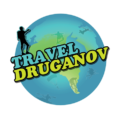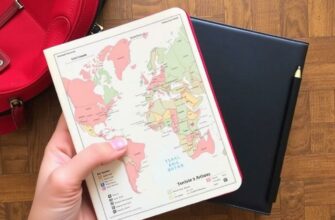Traveling is more than just a way to escape the daily grind or check destinations off a bucket list. For many, it’s a transformative journey that broadens horizons, builds new skills, and creates lasting memories. But have you ever stopped to consider how those travel experiences might also open up exciting career opportunities? Turning travel experiences into career opportunities is not only doable but, in today’s interconnected world, increasingly valuable. Whether you’re a seasoned globetrotter or someone just starting to explore the world, leveraging your travel adventures to build a meaningful career can be a game-changer.
When you travel, you’re doing more than seeing new places; you’re developing interpersonal skills, learning new languages, and gaining cultural insight that many employers actively seek. You might wonder how to translate these intangible benefits into professional credentials or tangible job options. Luckily, the good news is that your travel experiences can fuel a whole range of career paths—from international business and tourism to content creation and education. This article will guide you step by step on how to turn your passion for travel into real career opportunities that bring both personal fulfillment and professional growth.
Why Travel Experiences Matter in Career Development
Travel broadens your perspective and pushes you out of your comfort zone. When you visit new countries, navigate foreign transportation systems, or communicate with people from different cultures, you’re building adaptability and resilience. These traits are essential in almost any career because they demonstrate flexibility and problem-solving skills. Employers value candidates who can handle uncertainty, think creatively, and work effectively with diverse teams.
Another critical aspect is the global awareness you gain while traveling. Understanding international customs, business etiquette, and cultural sensitivities can set you apart from other job seekers. In a global economy, companies often look for professionals who are culturally competent and can navigate different markets with ease. Travel experiences provide you with firsthand knowledge that no textbook or classroom can offer.
Transferable Skills You Gain from Travel
Travel is a rich source of transferable skills—abilities you can apply across various workplaces and industries. Here is a table highlighting some of the key skills you develop through travel, along with examples of how they apply in a professional setting:
| Travel Skill | Description | Career Application |
|---|---|---|
| Communication | Navigating language barriers and diverse accents | Client relations, cross-cultural negotiations, team collaboration |
| Problem-Solving | Handling unexpected travel challenges, such as lost luggage or missed flights | Project management, crisis response, operational planning |
| Adaptability | Adjusting to shifting plans, environments, and local customs | Working in dynamic environments, managing change, innovation |
| Time Management | Maximizing experiences within limited timeframes | Meeting deadlines, prioritizing tasks, multitasking |
| Networking | Making new contacts across the globe | Business development, sales, international partnerships |
Recognizing the skills you’ve amassed during your travels is the first step in turning travel experiences into career opportunities. It helps you articulate your value to potential employers and identify the types of roles that would best suit your unique background.
Career Paths Fueled by Travel Experiences

Once you understand the intrinsic value of your travel experiences, the possibilities for career opportunities are vast. The key is to find industries and roles where global exposure and cultural intelligence are assets. Here are some compelling career paths where your travel experiences can be a real advantage.
1. International Business and Trade
Global commerce thrives on cultural knowledge and the ability to communicate across borders. If you’ve traveled extensively, you already have a foot in the door when it comes to understanding market nuances, customs, and client expectations. Many businesses seek professionals who can travel or work abroad to manage international relationships or expansions. Your insights from personal travel will help you navigate these roles with authenticity and confidence.
2. Tourism and Hospitality
It almost goes without saying that travel experiences and the tourism industry go hand in hand. Whether working as a travel agent, tour manager, or hospitality consultant, having firsthand knowledge of destinations, accommodations, and local culture is invaluable. Your personal stories and recommendations add a layer of credibility and empathy that travelers appreciate. Additionally, these roles often demand problem-solving and people skills—the very attributes travel hones.
3. Content Creation and Digital Nomad Careers
Many travelers gather unique stories, insights, and photography during their journeys, which can transform into lucrative careers as bloggers, vloggers, travel writers, or social media influencers. If you’re passionate about sharing your travel experiences, there are countless ways to monetize your skills through content creation, affiliate marketing, and brand partnerships. Building a digital presence that highlights your travel expertise can open doors to freelance opportunities and remote work.
4. Teaching and Language Careers
Travel often sparks a love for languages and cultural exchange. Teaching English as a foreign language or becoming a language tutor abroad are popular career options for individuals with travel backgrounds. Your exposure to various languages and cultures will help you connect with students, offering enriched experiences beyond textbook learning. These roles often come with the perk of staying in your favorite destinations while contributing to local communities.
5. Non-Profit and International Development
If your travel experiences include volunteering or immersive cultural exchanges, careers in non-profit organizations or international development might be a great fit. These roles require empathy, cultural sensitivity, and project management skills to implement programs that aid underserved populations. Your global exposure gives you a unique perspective that can improve the effectiveness and impact of such initiatives.
How to Showcase Travel Experience on Your Resume and LinkedIn

One of the biggest challenges in turning travel experiences into career opportunities is making sure that potential employers understand their value. Many people mistakenly think casual travel isn’t relevant to their professional profiles. However, when framed correctly, your travel history can become an asset.
1. Highlight Transferable Skills and Achievements
Instead of listing trips or vacations, focus on what you learned and accomplished during your travels. Did you manage logistics for a group trip? Volunteer with a local community? Learn a new language? Include these experiences as bullet points that emphasize skills like leadership, adaptability, and communication.
2. Include International or Cross-Cultural Experience
If your travels involved study abroad, internships, or work in foreign countries, be sure to detail dates and responsibilities. Use phrases like “managed cross-cultural communications” or “developed international business strategy” to demonstrate professionalism.
3. Use a Dedicated ‘Global Experience’ Section
Creating a section on your resume titled “Global Experience” or “International Exposure” can help draw attention to your travel-related skills. Here’s an example of how you might structure this:
- Volunteer Coordinator, Kenya (Summer 2022): Organized local community projects and liaised between volunteers and local leaders
- Study Abroad Exchange, Spain (Fall 2021): Immersed in Spanish language and culture, completed courses in international business
- Freelance Travel Writer (2020-Present): Published articles on global travel trends and cultural insights
4. Leverage LinkedIn Features
LinkedIn allows you to add multimedia, descriptions, and endorsements that can highlight your travel skills. Posting travel-related content, publishing articles, and joining groups focused on international careers can also increase your visibility. Don’t forget to ask for recommendations from people you met or worked with during your travels.
Building a Network to Cement Travel-Based Career Opportunities
Networking is crucial in converting travel experiences into career opportunities. The more people you know, especially internationally, the higher your chances of uncovering job leads, freelance gigs, or collaborative projects.
Networking Tips for Travel Enthusiasts
- Connect with locals and fellow travelers: Build genuine relationships during your trips which can later turn into professional connections.
- Attend industry conferences and expatriate meetups: These gatherings are ideal for people with cross-cultural experience to share insights and opportunities.
- Join online communities: Platforms like LinkedIn, Facebook groups, and specialized forums can connect you with professionals who value global experience.
- Volunteer or intern abroad: It’s a powerful way to meet like-minded individuals and gain experience that employers respect.
Education and Certifications to Complement Travel Experience

While travel imparts valuable life skills, supplementing your experiences with formal education or certifications can boost your employability. Depending on your career goals, consider pursuing:
| Certification | Benefit | Suitable Careers |
|---|---|---|
| TEFL/TESOL Certificate | Qualified to teach English abroad or online | Teaching, tutoring, language coaching |
| Project Management Professional (PMP) | Improves leadership and organizational skills | International business, non-profit coordination |
| Digital Marketing Certification | Teaches skills in content creation and brand promotion | Travel blogging, social media management |
| Foreign Language Proficiency Exams | Validates language skills for professional use | Translation, diplomacy, global commerce |
Combining certifications with your travel experience not only makes your resume stand out but also helps you feel more confident stepping into new roles.
Tips to Stay Motivated as You Transition from Traveler to Professional
It’s natural to feel overwhelmed when trying to transform your travel passion into a career. The journey requires patience, persistence, and sometimes a new mindset. Keep these tips in mind as you make the shift:
- Set clear goals: Define what kinds of jobs or industries excite you and focus your efforts accordingly.
- Be open to starting small: Freelance gigs, internships, or part-time roles can be stepping stones.
- Keep learning: Stay curious and invest in new skills that tie into your travel background.
- Share your story: Being authentic about how travel shaped your abilities makes you memorable to employers.
- Stay connected: Maintain relationships formed during travel and leverage them professionally.
Real Stories: How People Turned Travel into Careers
Many professionals credit their travel experiences as the catalyst for exciting careers. Here’s a quick look at three inspiring examples:
- Emma, the International Marketing Specialist: After backpacking through Asia, Emma landed a marketing role with a global brand. Her cultural insights helped the company tailor campaigns for Asian markets with great success.
- Jamal, the ESL Teacher: Inspired by language immersion in South America, Jamal earned a TEFL certificate. He now teaches English online while planning to move abroad again.
- Sophie, the Travel Blogger: What began as journaling trips evolved into a full-time career. With a growing social media following, Sophie collaborates with tourism boards worldwide.
Their stories illustrate how travel experiences enrich careers in diverse ways and show it’s possible to align your passion with your profession.
Conclusion
Turning travel experiences into career opportunities is about recognizing the incredible value your adventures bring beyond souvenirs and photographs. Travel cultivates essential skills such as adaptability, communication, and cultural intelligence that resonate with employers across industries. Whether you want to enter international business, tourism, education, or the digital gig economy, strategically showcasing your travel background can help open doors. By complementing your experiences with targeted education, networking, and a clear sense of direction, you can transform the memories and lessons from your journeys into a thriving, rewarding career. So, keep exploring, learning, and sharing your story—your next great career opportunity might be just one trip away.









